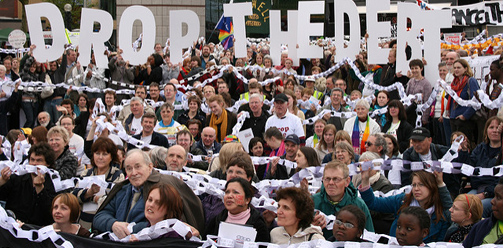What constitutes meaningful participation in the economic sphere and how it might be enabled? In this project IDS draws upon and expands its rich experience at the forefront of thinking about participation in development, and our emerging work at the intersection of participation and markets. We have been co-creating along with the Economic Advancement Program (EAP) at the Open Society Foundations (OSF), a deeper understanding of participation in economic advancement in general, as well as how EAP can bring participatory approaches into its own practice.

IDS and the Open Society Foundations (OSF) are working to identify exciting economic alternatives: ways that enterprises, communities and societies are making economic decisions in which ‘ordinary’ people have a real voice.
The key to the research is not only about understanding economic alternatives, but those that have a strong participatory element.
In particular, we want to understand participation in three areas:
- Alternative forms of economic management that enable workers, consumers, communities, farmers, for example, to have a voice.
- Citizen voice in government economic policy-making
- Grassroots economic alternatives where people claim ownership over economic processes that affect their lives
Mapped examples of how meaningful participation in economic futures can happen
We have been collecting and mapping well-known cases to understand how meaningful participation happen.
See our map below for a snapshot of the cases identified so far, and click on the markers to see a description of the example.
About our approach
We have been working on two intersecting workstreams (WS1 and WS2), as follows:
1. WS1 – Building an evidence base for participation in economic advancement
Through mapping and co-inquiry with EAP and its partners and others in this field, we identifed existing initiatives and experiences of how meaningful participation and engagement of economically disenfranchised people can occur – and challenges be overcome – in areas such as economic investment, economic policymaking, creation of economic alternatives, and the transformation of economic systems that perpetuate vulnerability.
2. WS2 – Putting ideas into practice: effective participation in grant making processes:
Starting with mapping of existing practices, and through co-inquiry with OSF and partners, we supported EAP to build knowledge and skills to put into practice its commitment to participation and engagement of beneficiaries in its own programming through the stages of diagnosis and program design, implementation, and monitoring, evaluation and learning (MEL).
Our Outputs
This project created a range of in-depth and accessible outputs, which form part of the Participation in Economic Advancement Collection. Specifically this includes the following publications:
Briefs
Deepening Impact through a Participatory Due Diligence Process
Cases
ASMARE: Informal Waste Workers Engaging in Municipal Policy-Making
BPDC: Costa Rica’s Worker-Owned Bank
Buen Vivir Fund: Participatory Impact Investing
‘Empresas Recuperadas’: Argentina’s Recovered Factory Movement
Ghana Civil Society Platform on the IMF Programme
IBEKA: Community-owned and Managed Mini Grids in Indonesia
Jubilee Debt Campaign: Civil Society Voice in Global Debt Governance
National Street Vendor Association: Lobbying for a National Urban Street vendor Policy in India
Participatory Guarantee Systems in Tanzania: Locally Focused Quality Assurance Systems
PEKKA: Women-Headed Household Empowerment
PUMA: Solidarity Economy in Pumarejo, Spain
RSF Social Finance: Transforming the Way the World Works with Money
RUDI Multi-trading Company: Locally- owned Agricultural Trade Network
The RSA Citizens’ Economic Council: Citizen Contributions to Policy Making Highlights
W.L. Gore & Associates Inc.: Workplace Democracy in a Transnational Corporation
In-depth Case Studies
Brazilian Network of Community Banks (BNCB)
Ghana Civil Society Platform on the IMF Programme
Working Papers
Contact us
For more information, contact:
Jodie Thorpe, Research Fellow, Institute of Development Studies
